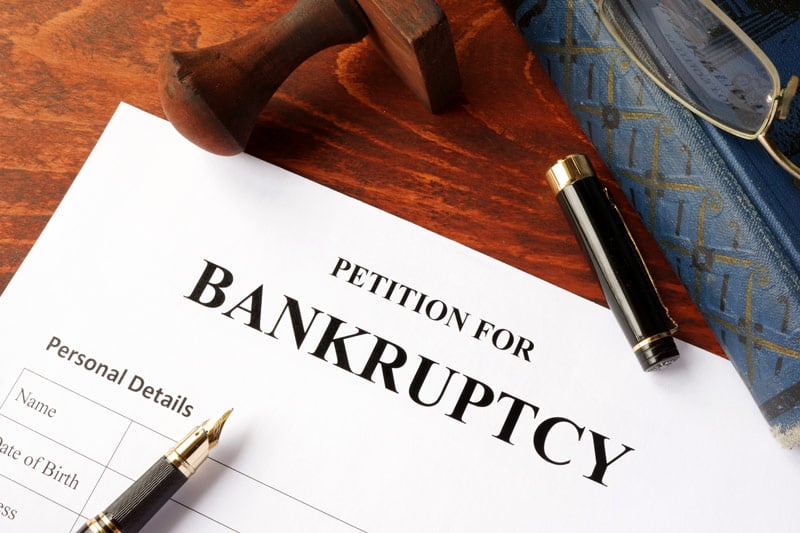Loan modifications and foreclosures
Everyone experiences hard times now and again. Sometimes, tough economic times can result in scary outcomes, such as the threat of your home being taken away.
If you’ve fallen behind on your mortgage payments, your mortgage company can initiate a foreclosure to take back their asset. If you don’t act quickly to prevent foreclosure with a loan modification, you could soon find yourself without a place to live.
Babi Legal Group has more than 10 years of experience helping people stop foreclosures and negotiate loan modification agreements. They have years of experience working with banks and know the ins and outs of home loan modification laws.
What is a mortgage loan modification?
Banks are not in the business of owning homes. At the same time, they obviously don’t allow their borrowers to live in homes without paying for it.
That’s why loan modification programs were created — to allow the homeowner to make up for missed payments and prevent the bank from foreclosing on the home.
A mortgage loan modification is an agreement between the mortgage company and the borrower that results in a restructured loan that makes it more affordable for the borrower to pay. Depending upon your situation, there are a number of ways a foreclosure modification can be done.
Lenders know that people can experience temporary financial hardship due to a divorce, Covid-19, medical issues, or a loss of income, for example. Most lenders will be amenable to devising loans to stop foreclosure because, as mentioned, they ultimately don’t want your home back.
Can you be denied a loan modification?
While lenders are often amenable to helping their borrowers, there are no loan modification laws that require them to do so. Just because you apply for a loan modification doesn’t mean you will automatically be approved.
Your lender may deny your application for a modification for any number of reasons, including but not limited to their determination of your ability to re-pay the modified loan, providing incorrect information or not providing required documentation in a timely manner.
Do you need a loan modification lawyer?
There is nothing in the loan modification rules and regulations that say you need to hire a lawyer to help with your application. However, having a loan modification lawyer on your team can certainly increase your chances of being approved.
For example, an attorney experienced in a foreclosure loan modification would be able to advise you to start the process of applying at least 30 days prior to the foreclosure sale date. That’s because a lender can still go through with a foreclosure during the loan modification process, even if the modification is pending and not finalized.
The team at Babi Legal Group has the experience necessary to guide you through a loan modification prior to foreclosure and even have successfully obtained loan modification after the homeowner has been denied. Dealing with a loan modification process can be complicated and time-consuming, making it difficult for people to do it on their own without the guidance of experienced professionals.
Loss modification after foreclosure
If you don’t act quickly enough, and in the right fashion, you could end up foreclosed on by your lender. If your situation gets to this point, your options are generally pretty limited — at least when dealing with the lender directly.
Once your home has been foreclosed on, a loan modification is no longer a viable option. In this scenario, we can help you challenge the validity of the foreclosure through the court system, something we have successfully done in the past for our clients.
This may allow you to prevent the foreclosure from becoming official and allowing you to keep your home.
Can a loan modification stop a foreclosure?
One of the most common questions borrowers ask is, “does loan modification stop foreclosure?” The answer is maybe.
It depends a lot on your specific situation, the lender you’re dealing with, and the timeliness of your efforts. In the experience of the attorneys at Babi Legal Group, most lenders will be willing to postpone a foreclosure sale if a loan modification is under review for a final determination.
The challenge is that most modifications can take anywhere from 30 to 120 days to complete. It may take a full month just to get to the review stage of the process. That’s why it’s essential that you start the process of loan modification as soon as you possibly can.
Loan modification programs
Each private lender will have different options for loan modification programs. If you find yourself in need of help to avoid foreclosure, you can reach out directly to your lender to see how they’re willing to work with you. However, they have no obligation to approve you for a loan modification and will only advise you of the documentation you need to provide.
The federal government offers a number of different loan modification programs for borrowers who have a mortgage backed by the FHA, USDA or VA, for instance. Check with the federal agency that backs your loan to see what steps you’d need to take.
The state you live in also may offer specific programs to help you avoid foreclosure. Michigan, for instance, offers an interest-free loan through the Step Forward Michigan Program. Although this is not a loan modification, it’s another avenue of assistance that may help homeowners stay in their homes if they have experienced financial hardship.
The Michigan State Housing Development Authority also offers a number of resources and guides to homeowners in the state.
What do you need to get a mortgage loan modification?
Just like when you apply for a mortgage to purchase a home, your lender will want to analyze your financial situation to decide whether to approve you for a loan modification. Most lenders will want to verify that you can afford the modified payment, and will ask to see pay stubs or proof of your recent income, as well as copies of your tax return for the last two years.
For independent contractors who receive income through 1099s or small business owners, this can prove to be challenging. The experienced and professional attorneys at Babi Legal Group can help guide you through this process, no matter how complicated your financial picture may be.
Loan modification rules
The rules and regulations that will apply to your loan modification will depend on the specific program that you are hoping to get. For example, the FHA requires that borrowers must have adequate debt-to-income ratios as well as no other options loss mitigation programs at their disposal to qualify for the FHA-HAMP program. Borrowers must also go through a trial payment plan successfully before they are allowed to become full participants in the program.
For private loan modification programs, lenders will generally require borrowers to prove that they can’t afford their current mortgage payments and that they can afford to pay whatever the modified payments will be. The property usually has to be your primary residence.
Conclusion
Falling behind on your mortgage payments can be a scary situation. But it doesn’t have to be the end of your days in your home.
In most cases, and with most lenders, you can get a loan modification to avoid foreclosure. The process can be long, drawn-out and complicated, though, which is why it’s in your best interest to hire an experienced attorney like the ones at Babi Legal Group to guide you through the process.











